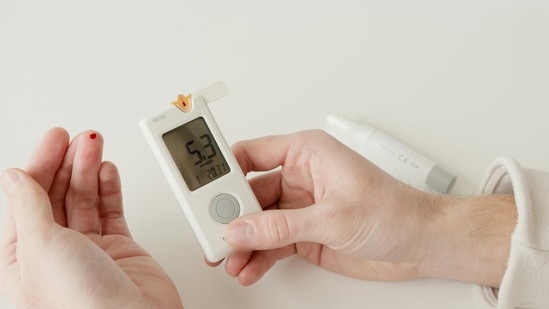Diabetes at 30? Habits putting young Indians at risk, 5 prevention tips for millennials and Gen Z in India
India’s diabetes crisis: Why type 2 Diabetes is hitting teens and young adults and lifestyle hacks every Indian needs to know to control their blood sugar level
India, often referred to as the ‘Diabetes Capital of the World’, faces a rising tide of new cases, many of which affect young adults and even adolescents. Unlike the common belief that diabetes mainly affects the elderly, diabetes is affecting an increasingly younger demographic.

Studies have shown that people as young as 30 and sometimes even younger, are now experiencing prediabetic conditions, impaired glucose metabolism and even Type 2 diabetes. In an interview with HT Lifestyle, Dr Advait Sharma, Chief Medical Officer at Truworth Wellness, opined, “This trend raises important questions about the role of lifestyle, stress and genetics in diabetes development. Additionally, in a corporate setting, stress can stem from various sources like workload, tight deadlines, job insecurity, and even the pressure to perform. However, many young adults do not take proper steps to manage stress, sometimes turning to alcohol, smoking or overeating as coping mechanisms, which can aggravate the risk of diabetes.”
He recommended some of the lifestyle adjustments which can help young adults –
1. Adopting a balanced diet:
Eating a diet rich in whole foods, including fruits, vegetables, lean proteins, and whole grains, can help maintain stable blood sugar levels. Avoiding processed foods and sugary beverages can also make a significant difference.
2. Staying physically active:
Regular exercise is a cornerstone of diabetes prevention. Physical activity helps regulate blood sugar, improve mood, and reduce stress. Simple activities such as taking the stairs, walking meetings, or even stretching at the desk can help reduce the effects of a sedentary lifestyle and effectively manage stress.

3. Stress management:
It is recommended to opt for healthy stress-relief techniques, such as deep breathing, mindfulness, or yoga, to avoid unhealthy coping mechanisms like excessive alcohol consumption or smoking. This can help you prevent the onset of chronic diseases like diabetes and manage your overall wellbeing.
4. Maintaining a sleep routine:
Sleep plays an essential role in regulating blood sugar levels. Studies have shown that poor sleep can increase insulin resistance, a risk factor for Type 2 diabetes. Maintaining a consistent sleep schedule and ensuring adequate rest can go a long way in supporting metabolic health.

5. Regular health checks:
Early detection of prediabetes can help prevent the risk of high sugar levels, which eventually impacts your overall health. Annual health check-ups that include blood sugar tests can identify at-risk individuals, enabling timely interventions.
Dr Advait Sharma concluded, “As diabetes increasingly affects younger populations in India, it is crucial to address the role of lifestyle, stress, and genetics in its development. In a corporate setting, the pressures young adults face can increase these risks, but by adopting healthier habits, such as maintaining a balanced diet, staying active, managing stress and ensuring proper sleep, they can significantly reduce their risk of developing diabetes. By making these simple yet impactful adjustments, young professionals can take control of their health, prevent diabetes and lead healthier, more productive lives.”
Disclaimer: This article is for informational purposes only and not a substitute for professional medical advice. Always seek the advice of your doctor with any questions about a medical condition.
See more
Catch your daily dose of Fashion, Taylor Swift, Health, Festivals, Travel, Relationship, Recipe and all the other Latest Lifestyle News on Hindustan Times Website and APPs.
- Diabetes
- India
- Diabetic
- Diabetes Diet
- Wellness
- Health
- Fitness
- Fitness Goal
- Diet
- Habit
- Lifestyle
- Millennial
- Youngster
- Teen
- Teens
- Blood Sugar
- Blood Sugar Level
- Blood Glucose
- Blood Glucose Level
- Adolescent
